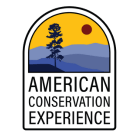Our staff recently connected with ACE EPIC Member Allyson Richins who is serving in the Bureau of Land Management’s AIM (Assessment Inventory and Monitoring) Program. Allyson shares her experiences in participating in this essential initiative promoting standardized field methods, data management and more to ensure effective methodologies.
What’s your background and current title? Can you explain what AIM is and its goals?
AIM stands for Assessment Inventory and Monitoring, and is a national BLM monitoring program for vegetation, soils, and aquatic resources. Implemented across terrestrial, riparian, and lotic habitats, this program was created to ensure national consistency across ecological monitoring efforts by the BLM. The goals of AIM are to ensure a structured, standardized methodology of monitoring public lands, a high standard of quality control and data management, and reliable data analysis to inform management decisions.
I currently work as Terrestrial AIM Data Specialist for New Mexico. I have a broad background in ecological monitoring of plants, soils, insects, and mammals. In my current position, I help to train AIM crews, and do field checks to make sure they are implementing the methods correctly. I also design AIM projects for New Mexico, do quality control for all data collected, and perform analyses to help BLM staff contextualize the data.
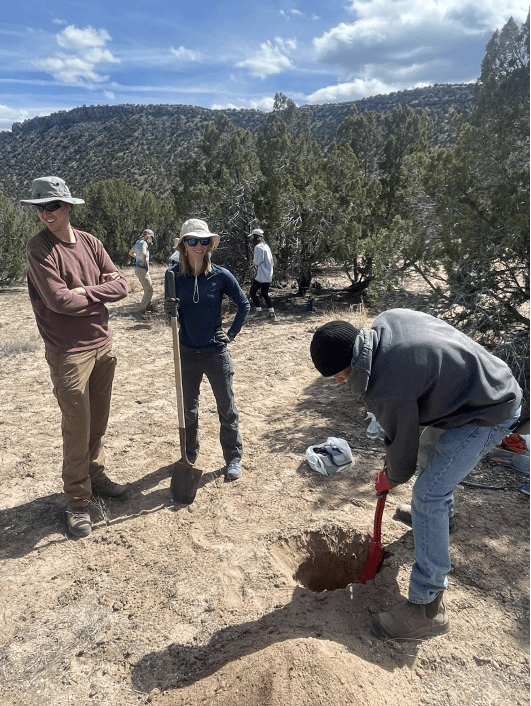
Digging soil pits at AIM training
What were your goals coming into the position, and how has this position helped shape your future goals?
My goals for this position were to make data increasingly accessible to BLM staff across New Mexico, to work with AIM crews to ensure quality data collection across the state, and to advance my skills in data management and spatial data analysis. This position has allowed me to network and collaborate with staff across multiple federal agencies, at local, state, and national levels. These new skillsets and relationships have illuminated many opportunities to continue my career working in the conservation of public lands.
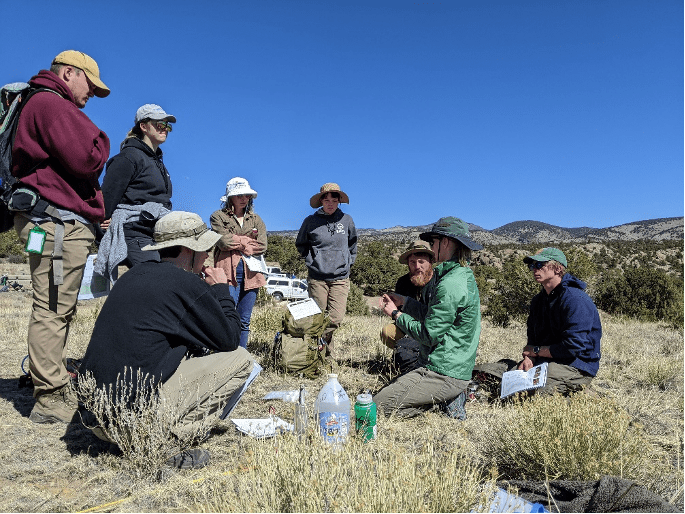
Teaching the soil stability protocol at AIM training
What parts/projects in this position are you most interested in or enjoy the most? Any that you believe will make the biggest impact?
My favorite parts of this job are working directly with field crews and field office staff. This job affords me the opportunity to travel all across New Mexico and work with a diverse group of people. I enjoy working outside as well as being a mentor for crew members. During the winter, I teach participants career skills like coding in R, GIS, and data visualization. I feel that my role as a mentor has a big impact for crew members in their development as scientists and critical thinkers.
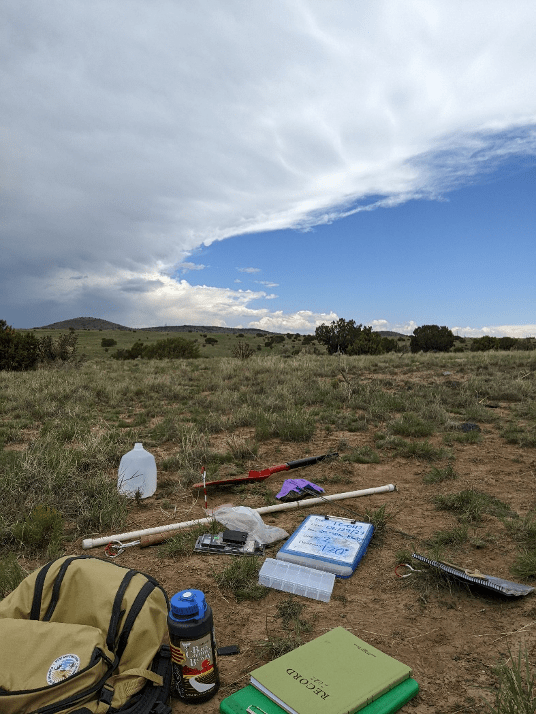
Field supplies at an AIM plot near Santa Fe, NM
Working directly with BLM staff has also been very rewarding professionally. I enjoy traveling to BLM field offices and working with staff to develop AIM projects and conduct analyses to best answer their management questions. Through conversations with field staff, I have created automated AIM data reports that can be applied to any allotment or watershed of interest in the state. Since I began in this position, field offices are increasingly interested in expanding AIM data collection and using this data to make management decisions. I feel has been my largest overall impact.
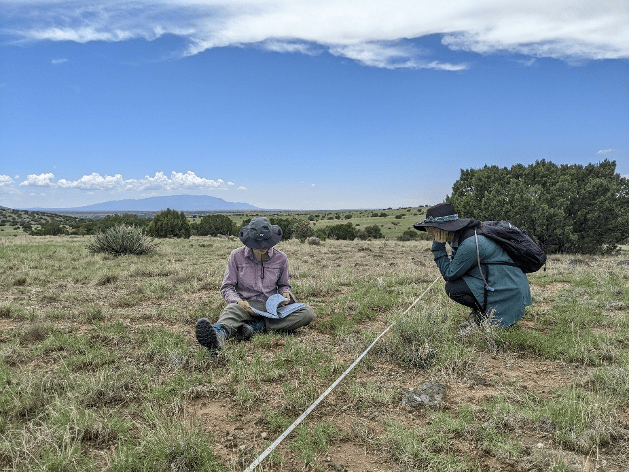
Keying out plants at an AIM plot
What is one of the things that you reflect on most about your early career in conservation?
I have held many different ecological monitoring positions across the US and internationally, working with unique organisms in a variety of habitats. All of these experiences have shaped my understanding of what it means to be an ecologist. I feel tremendously fortunate to work in a field that I love with people who are as passionate as I am in conservation ecology.
What advice would you have for those who would like to move to a similar role as you have now?
Take a deliberate approach to build a resume with a variety of skillsets. My position primarily combines knowledge of data stewardship with my background in ecological monitoring. If you are interested in pursuing a similar role, I’d recommend acquiring experience in both. For those with a background doing a lot of fieldwork, taking some time to learn how to code and work with GIS products is essential for this type of role. I would also recommend practicing leadership and other intrapersonal skills that come with managing the workflow of others.
Share a book or music/podcast rec for long work days or remote work locations!
I enjoy listening to Planet Money from NPR to pass the time!
